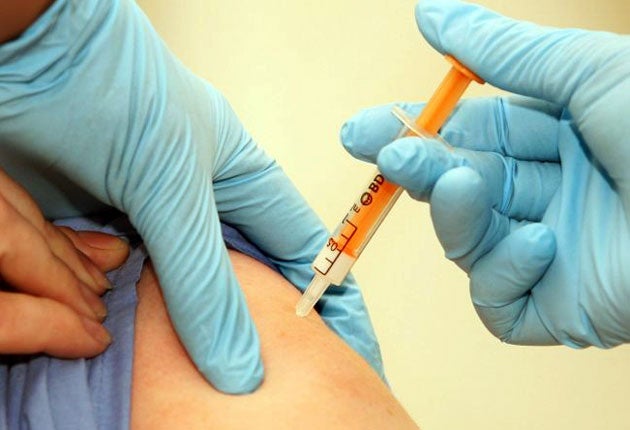There's no perfect prescription for preventing winter deaths, but this year the flu jab has had a shot in the arm
Analysis As the ONS warns flu played a significant part in 50,000 extra deaths last winter, Alex Matthews-King explains why it should be one symptom the NHS doesn't have to look out for this year


The Office for National Statistics figures revealing that last winter was the deadliest since the 1970s have reopened concerns about seasonal preparedness as another December rolls around.
Between December 2017 and March 2018 there were 50,100 “extra” deaths – over and above the rates expected from the last five years and the biggest spike since 1975-76.
The King’s Fund think tank has warned that these spikes could become a continual trend. The UK’s population is steadily ageing and reductions in heart attacks and strokes – which have reliably occurred for decades – have begun to slow amidst the longest funding squeeze on record.
But as the ONS points out, a perfect storm of freezing temperatures, heavy flu and the less-than-expected effectiveness of the influenza vaccine made matters far worse last year.
NHS England chief executive Simon Stevens warned in September 2017 that a flu strain which wracked Australia and New Zealand during the southern hemisphere winter, would cause similar problems here.
The impending “Aussie flu” sparked a major vaccination push, particularly among certain risk groups, including adults with a health condition, pregnant women, and NHS staff.
However Public Health England warned in January that while the vaccine given to most adults did protect against Aussie flu – a more serious strain – it wasn’t effective against the strain that was circulating most widely in the UK.
These issues arise because the influenza virus is constantly mutating and multiple strains will be circulating in each country at any one time.
The World Health Organisation makes predictions each year about what strains will be most common in each region roughly 18 months ahead.
Manufacturers then have to produce the vaccine and ship it to GPs and pharmacists to begin immunisation campaigns in time for winter.
Last year NHS clinical commissioning groups had discretion over whether to offer adults a cheaper trivalent jab – which acts against three strains of flu – or a more broad acting quadrivalent type.
With cost considerations at play, many vulnerable adults were only offered the trivalent jab and may not have received full protection. This in turn, added to NHS staff sickness and infections in patients with long term conditions that could turn deadly.
This is why charities like Asthma UK and the British Heart Foundation said the figures show how important it is for people with long term conditions to get vaccinated. Despite not always providing perfect protection, it reduces the risks of complications, particularly as cold weather also exacerbates the risk of heart and asthma attacks.
This year patients are also set to better protected, according to PHE, as the quadrivalent vaccine is the only option recommended for at-risk adults under 65, based on it being more cost effective to prevent illnesses.
Meanwhile, all adults 65 and over, who are eligible for free vaccination anyway, are getting an “adjuvant” trivalent vaccine, which PHE says is shown to better stimulate older people’s immune response to the jab and give more effective protection.
While the pressures of older, sicker patients aren’t going anywhere and Theresa May’s much-hyped £20bn will not start to plug the gaps in the cash-starved NHS until spring.
Hopefully the lessons learned from last year’s flu campaign mean one less thing to worry about as another winter looms.
Join our commenting forum
Join thought-provoking conversations, follow other Independent readers and see their replies
Comments
Bookmark popover
Removed from bookmarks